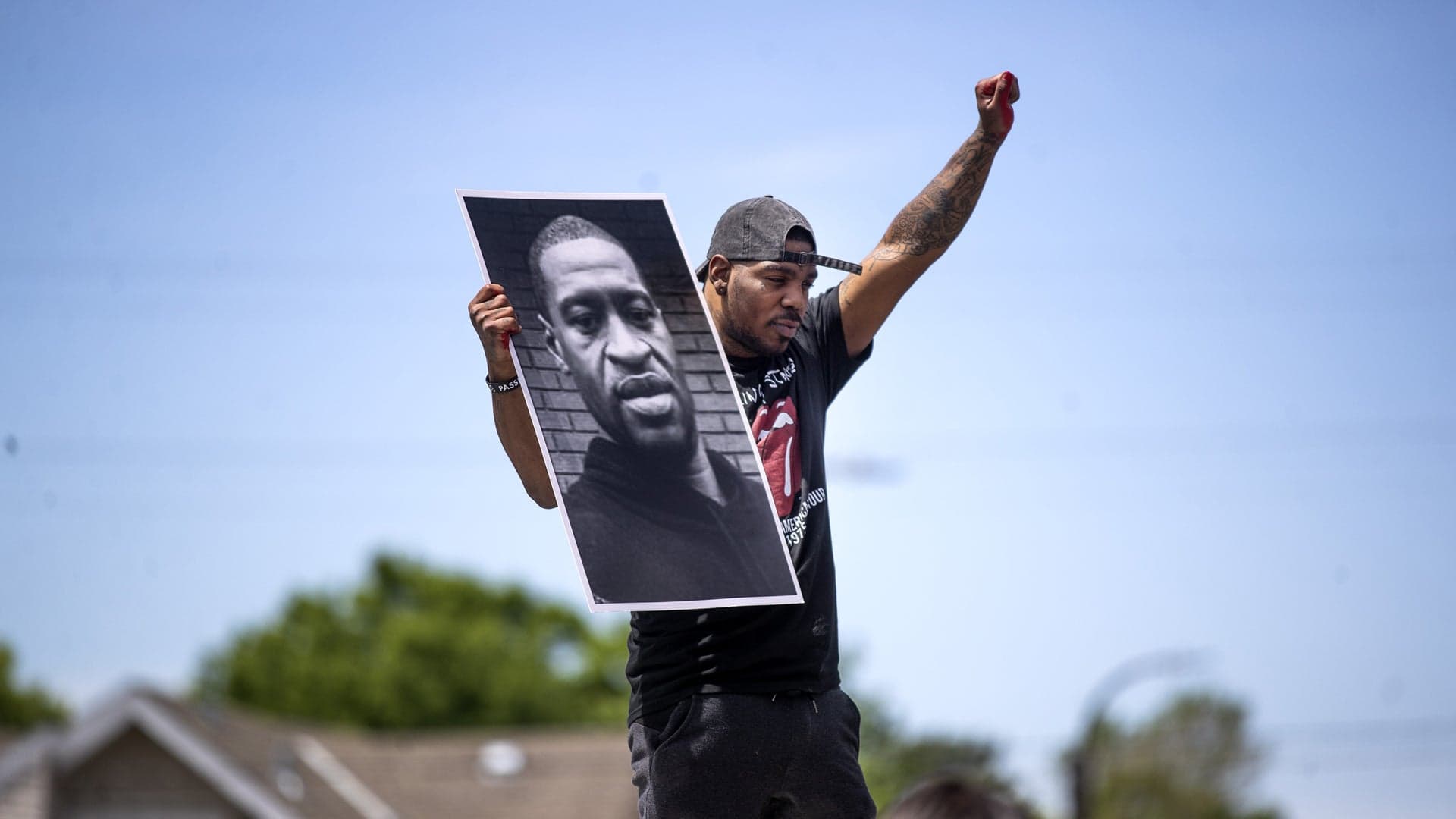On the evening of May 25, 2020, white Minneapolis police officer Derek Chauvin kills George Floyd, a Black man, by kneeling on his neck for almost 10 minutes. The death, recorded by bystanders, touched off what is possibly the largest protest movement in U.S. history and a nationwide reckoning on race and policing.
The 46-year-old Floyd, a Houston native and father of five, had purchased cigarettes at a Minneapolis convenience store. After a clerk suspected that Floyd had used a counterfeit $20 bill in the transaction, the store manager called the police. When officers arrived, they pulled a gun on Floyd, who initially cooperated as he was arrested. However, Floyd resisted being placed in the police car, saying he was claustrophobic. Officers eventually pulled him from the car and Chauvin pinned him to the ground for nine minutes and 29 seconds. Floyd was unresponsive when an ambulance came and was pronounced dead at a local hospital.
After video of the incident was posted on Facebook, protests began almost immediately in Minneapolis and quickly spread across the nation. Demonstrators chanting “Black Lives Matter” and “I Can’t Breathe” took to the streets from coast to coast, and police departments around the country responded with riot-control tactics. Floyd’s murder came after protests over the killings of Ahmaud Arbery in Atlanta in February and of Breonna Taylor in Louisville in March, and also came in the third month of nationwide lockdowns due to the COVID-19 pandemic.
By early June, protests were so widespread that over 200 American cities had imposed curfews and half of the United States had activated the National Guard. Marches continued and spread throughout June, despite the restrictions on gathering during the COVID-19 pandemic and militarized resistance from federal and local law enforcement.
All told, more than 2,000 cities and towns in all 50 states saw some form of demonstration in the weeks after Floyd’s death, as well as major cities across the globe.
The protests set off local and national dialogue about the role and budgets of American police departments, as well as intense discussions in schools and corporations about how to end racism and create inclusivity, equality and equity.
Chauvin, who had at least 17 other misconduct complaints lodged against him prior to killing Floyd, was arrested on May 29, 2020 and charged with second-degree and third-degree murder, as well as second-degree manslaughter. On April 20, 2021, after a trial, which was broadcast live online and on TV due to the pandemic, a jury found Chauvin guilty of all charges. He was later sentenced to 22 and a half years in prison.
